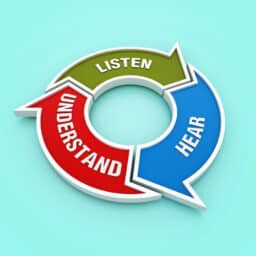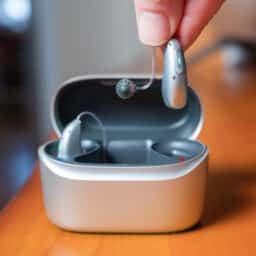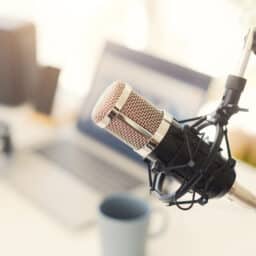Your Guide to Hearing Loss Testing and Treatment

Noticing changes in your hearing can stir up a mix of emotions, from frustration to uncertainty about what comes next. While it’s completely natural to feel that way, we’re here to help you every step of the way, starting with a clear guide to your treatment journey. Hearing Testing Your path to better hearing begins…
Holiday Gifts to Treat Your Ears This Year

Holiday gift lists can get a little long. With all the time you spend finding the perfect gift for each of your loved ones, it’s important not to forget yourself. Let’s look at a few gifts that not only make you smile but also help protect your ears from damage. 1. Over-The-Ear Headphones Noise-induced hearing…
Making the Holidays Merrier for a Loved One With Hearing Loss

When you think of the holidays, you might picture cookie decorating, cheesy movies or lighting candles. Sharing those memories with someone you love makes them even more special. If you have a loved one with hearing loss who feels unsure about joining in, there are a few ways you can help them feel comfortable in…
How Hearing Loss Can Affect Your Mental Health

When most people think about hearing loss, they picture someone turning up the TV, asking others to repeat themselves or struggling to follow conversations. What’s less visible, but just as significant, is how hearing challenges can affect mental health. The Emotional Toll of Untreated Hearing Loss Healthy communication is at the heart of every relationship….
Social Well-Being with Hearing Aids: Reclaiming Connection

Strong social connections are essential for mental health, emotional resilience and a sense of belonging. However, hearing loss can make it difficult to maintain these social connections. Conversations start to feel harder to follow, and group activities may leave you more drained than usual. Often, the social impacts of untreated hearing loss happen without you…
What To Know About Auditory Training

Hearing loss makes understanding speech challenging. While hearing aids are powerful tools that amplify sound and support everyday communication, they don’t instantly restore the ability to understand speech, especially in noisy or complex environments. That’s where auditory training comes in. What Is Auditory Training? Auditory training is a therapy designed to help people with hearing…
What to Know About Rechargeable Hearing Aids

Most gadgets in your home are rechargeable, including your laptop, phone, tablet and maybe even your vacuum. The other half have disposable batteries, like your TV remote or smoke alarms. There are benefits to both, and the same is true of rechargeable or non-rechargeable hearing aids. What Are the Benefits of Rechargeable Hearing Aids? Traditional…
How Do I Break the Tinnitus Stress Cycle?

Tinnitus, the presence of ringing or buzzing in the ear, affects more than 50 million people in the United States. One of the most common side effects of tinnitus is stress. Unfortunately, collective research also suggests that stress can contribute to the development and worsening of tinnitus. The connection between contributes to a self-defeating tinnitus/stress…
Improving Podcasts and Audiobooks for People With Hearing Loss

Nearly 15% of American adults experience some form of hearing loss, which can make enjoying audio-based content like audiobooks or podcasts, a frustrating experience. Fortunately, both content creators and listeners can take simple, effective steps to make audio content more accessible and enjoyable for all. For the Creator If you’re someone who produces audio content,…
Thoughtful Valentine’s Day Gifts for Healthy Hearing

Valentine’s Day celebrates love, connection, and the little things that make your relationship special. This year, go beyond traditional chocolates and flowers by choosing a gift that supports your partner’s hearing health. Whether they deal with hearing loss or tinnitus, love music, frequently attend noisy events or simply want to prioritize their well-being, these thoughtful…
